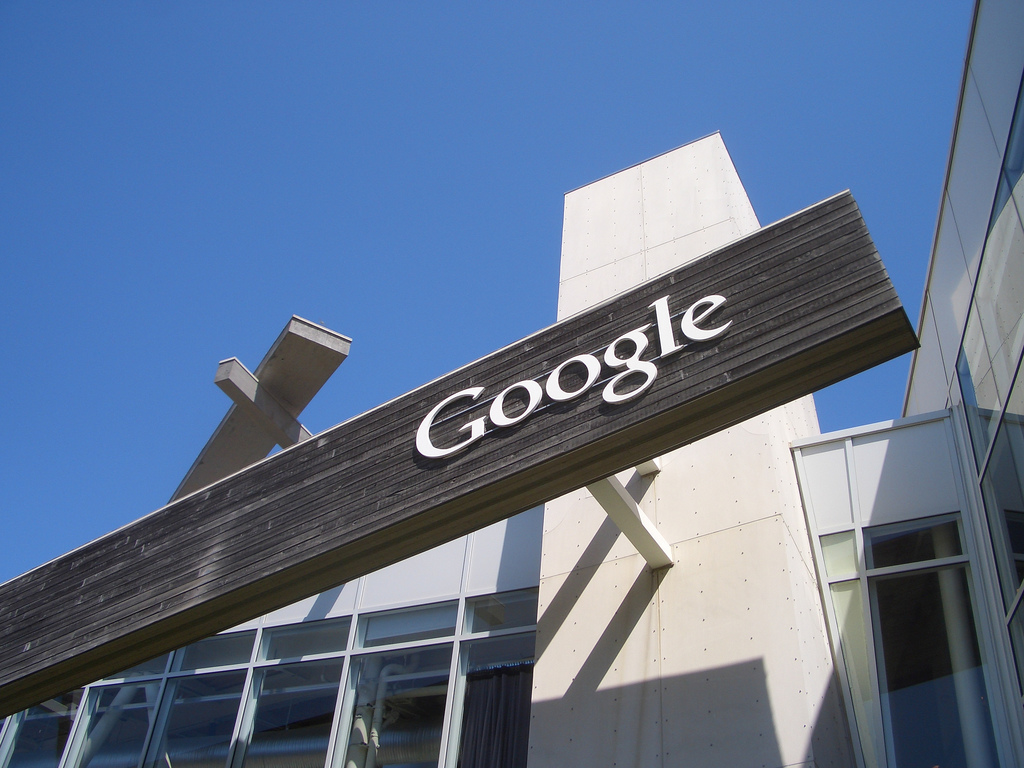Computer chips are getting faster all the time, but there were moments a while back when they were not fast enough for Google. As a result, the tech giant had to create its own hardware that can handle the kind of processing power and speed that it needed. This is where its artificial intelligence chip called the Tensor Processing Unit (TPU) comes into the picture, and according to the company, it’s 15 to 30 times faster than most CPUs and GPUs.
Several years ago, Google was in a bind. Its voice recognition services were exploding and it didn’t have the infrastructure to actually keep supporting it. The company could either spend more money by creating more data centers or find a way to provide that processing power to meet the demands of machine learning requests. Google chose the latter, PC World reports.
The result of its efforts is the TPU, which is basically a processor meant to increase the communication and translation within deep neural networks. Showing off exactly what its chip can do, Google recently published a report that compares the TPU to standard CPUs and GPUs used in data centers.
Based on the numbers provided by the company, it seems the TPU exceeds most conventional chips by a mile and a half. Of course, as Tech Crunch points out, these are numbers that Google is giving out. There are no third-party comparisons to draw any kind of unbiased conclusions from, so it’s worth taking the company’s claims with a grain of salt.
It’s also worth pointing out that these numbers pertain to machine learning and not to conventional computing tasks, like what most people deal with when playing games or working with demanding software. As such, while the TPU might blow its predecessors out of the water, its uses are quite limited.



 Nintendo Shares Slide After Earnings Miss Raises Switch 2 Margin Concerns
Nintendo Shares Slide After Earnings Miss Raises Switch 2 Margin Concerns  SpaceX Pushes for Early Stock Index Inclusion Ahead of Potential Record-Breaking IPO
SpaceX Pushes for Early Stock Index Inclusion Ahead of Potential Record-Breaking IPO  Elon Musk’s Empire: SpaceX, Tesla, and xAI Merger Talks Spark Investor Debate
Elon Musk’s Empire: SpaceX, Tesla, and xAI Merger Talks Spark Investor Debate  Sony Q3 Profit Jumps on Gaming and Image Sensors, Full-Year Outlook Raised
Sony Q3 Profit Jumps on Gaming and Image Sensors, Full-Year Outlook Raised  SpaceX Updates Starlink Privacy Policy to Allow AI Training as xAI Merger Talks and IPO Loom
SpaceX Updates Starlink Privacy Policy to Allow AI Training as xAI Merger Talks and IPO Loom  SoftBank Shares Slide After Arm Earnings Miss Fuels Tech Stock Sell-Off
SoftBank Shares Slide After Arm Earnings Miss Fuels Tech Stock Sell-Off  Jensen Huang Urges Taiwan Suppliers to Boost AI Chip Production Amid Surging Demand
Jensen Huang Urges Taiwan Suppliers to Boost AI Chip Production Amid Surging Demand  Google Cloud and Liberty Global Forge Strategic AI Partnership to Transform European Telecom Services
Google Cloud and Liberty Global Forge Strategic AI Partnership to Transform European Telecom Services  Instagram Outage Disrupts Thousands of U.S. Users
Instagram Outage Disrupts Thousands of U.S. Users  Oracle Plans $45–$50 Billion Funding Push in 2026 to Expand Cloud and AI Infrastructure
Oracle Plans $45–$50 Billion Funding Push in 2026 to Expand Cloud and AI Infrastructure  Elon Musk’s SpaceX Acquires xAI in Historic Deal Uniting Space and Artificial Intelligence
Elon Musk’s SpaceX Acquires xAI in Historic Deal Uniting Space and Artificial Intelligence  Anthropic Eyes $350 Billion Valuation as AI Funding and Share Sale Accelerate
Anthropic Eyes $350 Billion Valuation as AI Funding and Share Sale Accelerate  Nvidia, ByteDance, and the U.S.-China AI Chip Standoff Over H200 Exports
Nvidia, ByteDance, and the U.S.-China AI Chip Standoff Over H200 Exports  SpaceX Prioritizes Moon Mission Before Mars as Starship Development Accelerates
SpaceX Prioritizes Moon Mission Before Mars as Starship Development Accelerates  Amazon Stock Rebounds After Earnings as $200B Capex Plan Sparks AI Spending Debate
Amazon Stock Rebounds After Earnings as $200B Capex Plan Sparks AI Spending Debate  Sam Altman Reaffirms OpenAI’s Long-Term Commitment to NVIDIA Amid Chip Report
Sam Altman Reaffirms OpenAI’s Long-Term Commitment to NVIDIA Amid Chip Report 































